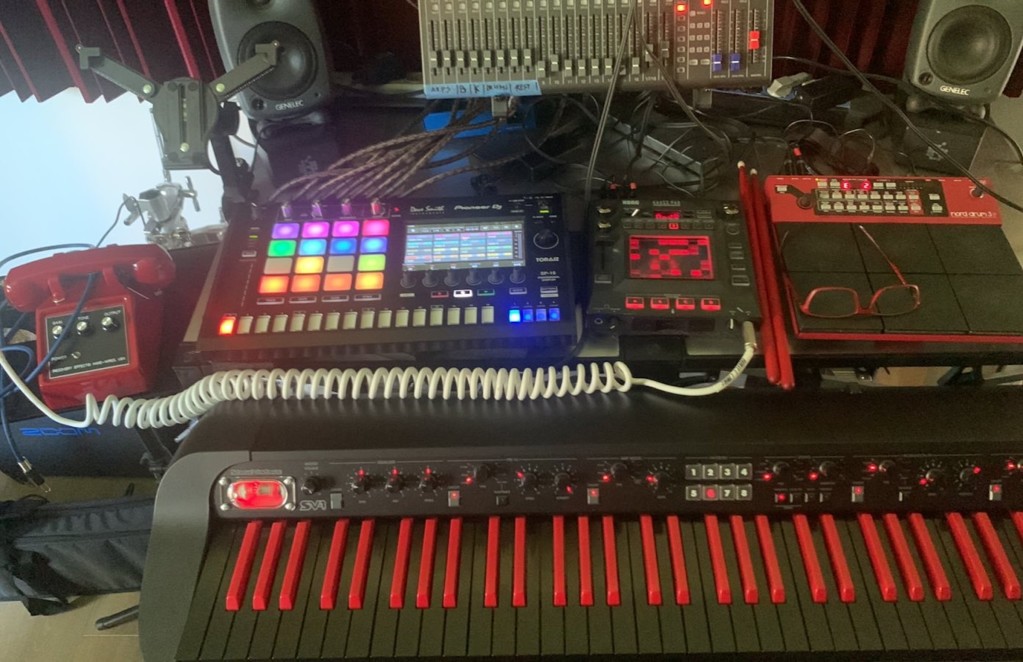Lithuanian composer and musician Andrius Mamontovas has a chillingly beautiful LP on the Ukrainian-run label I Shall Sing Until My Land Is Free, under the project name Dots On The Sun.
Mamontovas is a superstar, a household name inside his home country and to the sizable Lithuanian communities abroad. I met him at a museum the last time I was in Vilnius and giggling schoolchildren from a field trip shyly asked if they could get selfies. (We were at the time marking the reminder that legendary Thereminist Clara Rockmore was, in fact, both Lithuanian and from a Jewish family.)
Calling this Dots On The Sun is perfect. But people who know Andrius and his music more closely also know he’s got an enormous range as a musician. And we need that range, sometimes, in order to express the complex feelings that arise in darker times. I’d say that was also age and maturity, but I find the same talking to much younger artists.
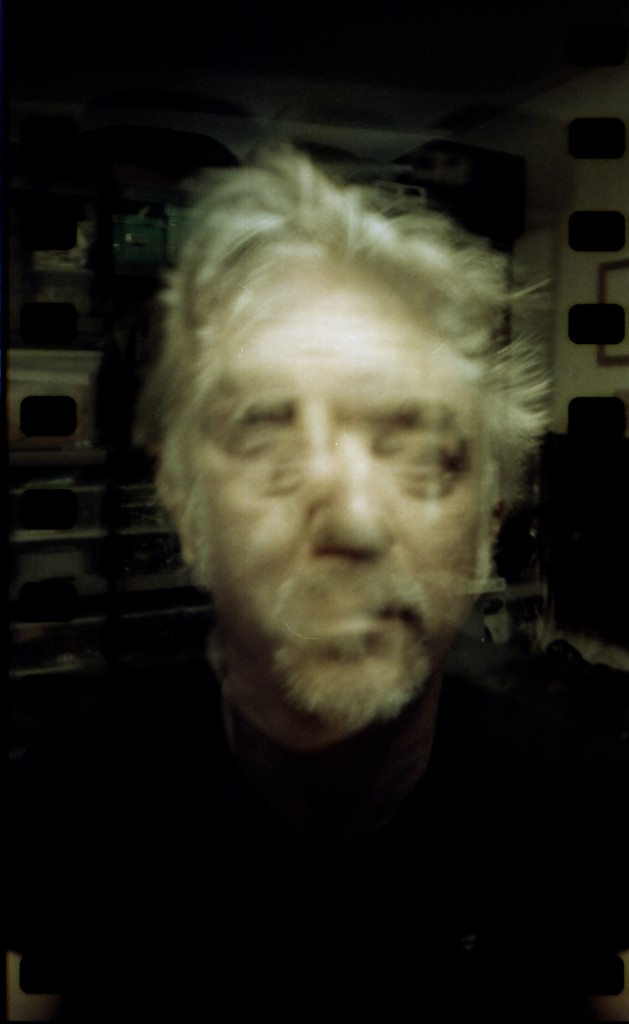
The challenge is finding an outlet for those emotions and dissonance; it’s hard sometimes to form them into sounds. Maybe there’s something to be said for courage in discipline. Andrius tells me this project began with Russia’s full-scale invasion of Ukraine. Since then, he’s recorded a piece every week – meaning he’s up to almost 70 tracks.
This project began with Russia’s full-scale invasion of Ukraine. Since then, he’s recorded a piece every week – meaning he’s up to almost 70 tracks.
Bottled Wind is heavy but concentrated. It’s a reminder of the lives lost and cities and villages crushed, the realities behind the easy flag waving and slogans. It’s at the same time unrelenting. I know the very first conversations I had with Andrius – on my first trip to Lithuania – were about wanting to move beyond the divided world we both grew up in and its oppression and fear. So for me, each track here feels calming and cathartic – a way to face some of that pain without despairing.
From “Chant Of None,” there is an insistent beat, and underneath all the rustling recordings and woosh of vocals and pads, some rhythm or breath continues moving forward – as if walking or breathing in and out. Synthesizers hum and buzz, almost as though they’re folk instrumentation; found sounds echo like memory or passing thoughts. There is a feeling of something deeply ritualistic, whining textures like drones ringing at dissonant intervals. This may not be what Kyiv or Odesa want to listen to, but maybe it’s also a way for those of us outside the world’s war zones to process our distance.
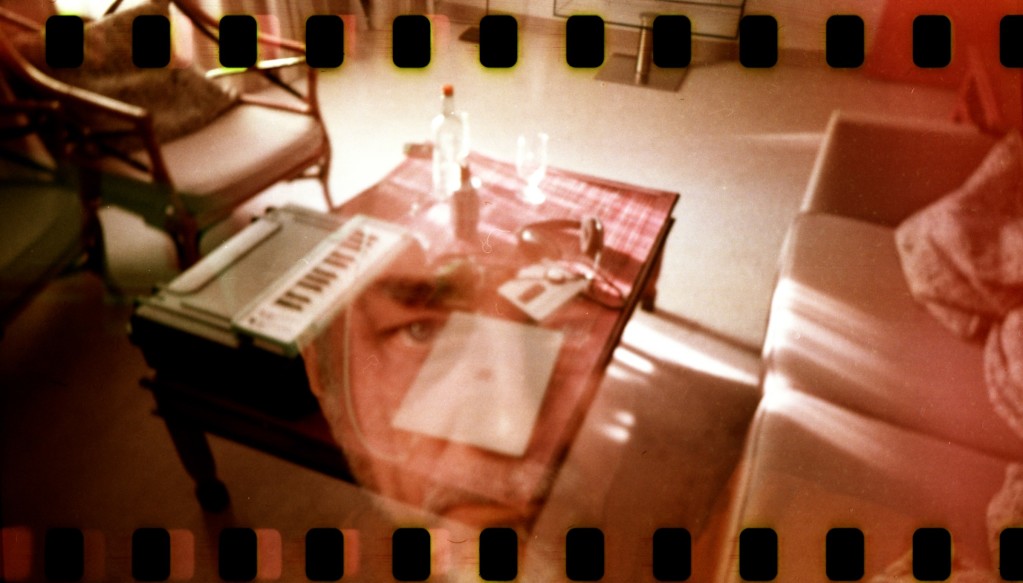
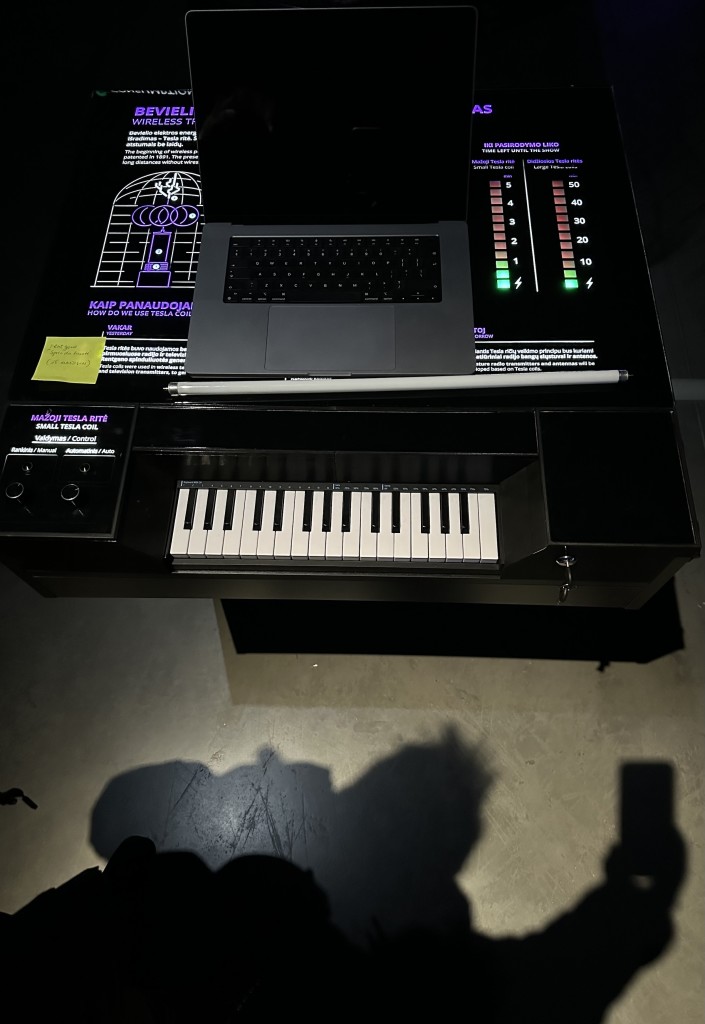
“Distant Trains” has that feeling, with mournful singing tones like shiting train whistles; the title recalls Steve Reich’s Different Trains and, like that piece, uses the railroad to connect war and people. There’s detailed rhythmic work along with the visceral larger gestures, as on “Drone and Pipe,” and dense, emotionally fierce beatless works like the closing “Telephonebient.” Despite the weekly, spontaneous nature, after the selection process it feels like a standalone ambient achievement.
I asked Andrius for some additional images you see here, reflecting both him and his workspace and the atmosphere between the two.
The Ukraine Resistance Radio project I’ve worked on with Andrius, Sophia Bulgakova, and Dmytro Fedorenko – Dmytro is also label boss of I Shall Sing Until My Land Is Free – began as a conversation. Andrius played a drone performance in front of the Russian embassy, and we talked about creating a platform for Ukrainian experimental artists to get their sounds heard. The response to that has been overwhelming; more on it soon. The project moves with Sophia to Rewire Festival in Den Haag NL next week, and I’ll write up the latest soon – meanwhile, you can listen to those episodes for Refuge Worldwide in Berlin and LRT OPUS in Vilnius.
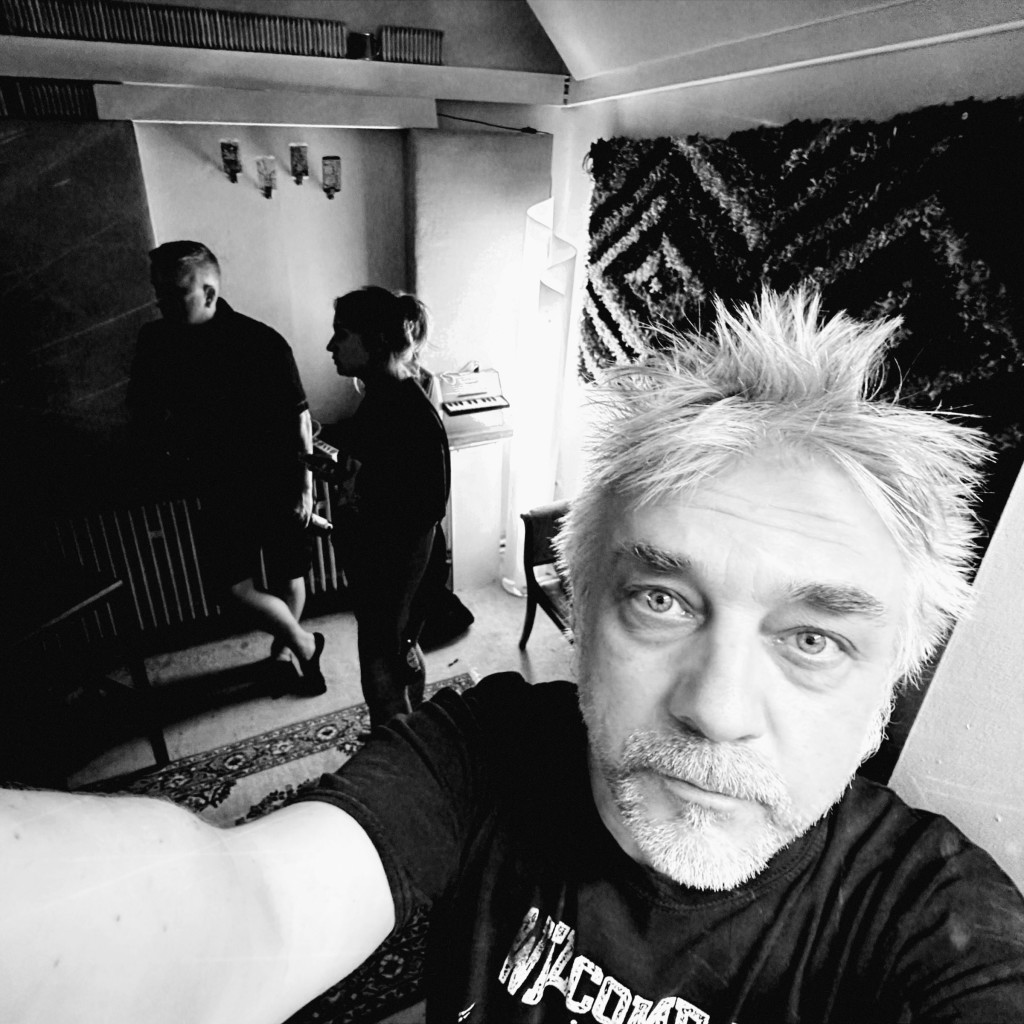
One of the reasons I get along with Dmytro is that his work on the label and as a human extends empathy and solidarity to others. The label project isn’t specifically dedicated to Ukraine alone but to liberation everywhere, even with the flag colors on the image. And that requires real patience – patience with time, patience with each other, patience with the tensions that can arise moving from issue to issue. The release from Andrius follows a posthumous reissue of the 1993 album by Muslimgauze, Betrayal, naming Palestinian cities and voicing frustrations that resonate as much today as over 30 years ago. Adding these political overlays to music, trendy as it may seem, is not easy. You can bet that raises some eyebrows in Ukraine. But maybe the only way to find some joy in times of war is to face all the darkness, all our fears, to feel that rather than apathy.
Music says everything and nothing – like light, it all at once embodies and triggers moods and has no meaning or text of its own. For any of our activism, history is bigger than us, sometimes threatening to swallow us and those we love. All we can do is take it day by day, and week by week. Music-making is one way to do that. Thanks so much to Andrius for sharing a few of those weeks with us.
https://ishallsinguntilmylandisfree.bandcamp.com/album/bottled-wind
